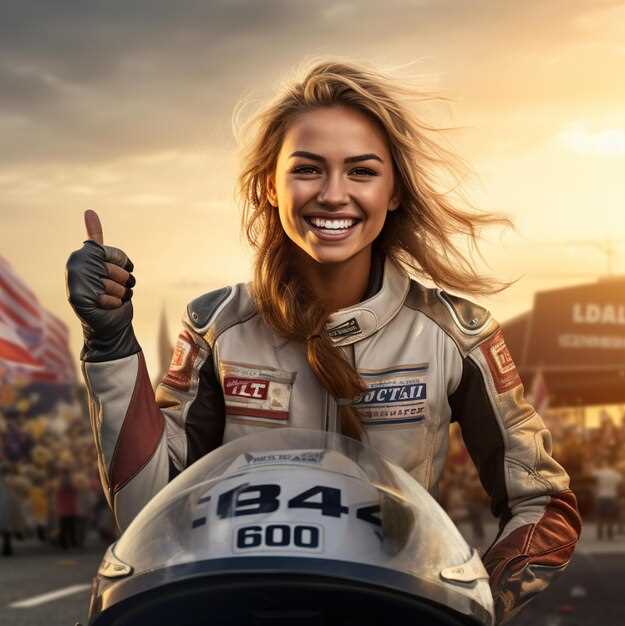

Throughout the history of motorsports, women have faced significant barriers in a male-dominated field. However, a remarkable transformation is taking place as female drivers continue to break new ground, demonstrating that passion and skill transcend gender. These pioneering women are not only chasing their dreams on the racetrack but also advocating for equality within the sport, inspiring the next generation of drivers to follow in their footsteps.
Each female driver represents a beacon of hope and resilience, challenging stereotypes and redefining the narrative surrounding women in motorsports. From early trailblazers to contemporary champions, their journeys highlight the relentless pursuit of excellence and the vital need for equality in racing. Their contributions range from groundbreaking performances to leadership roles that strive for greater recognition and support for female participation in all facets of the sport.
As we explore the stories of these extraordinary women, we not only celebrate their achievements but also acknowledge the systemic changes that are necessary for a more inclusive future. The evolution of motorsports is a testament to the strength and determination of female drivers who continue to shape the history of this exhilarating sport.
Breaking Barriers: The First Female Drivers in Competitive Racing
The world of competitive racing has always been characterized by speed, precision, and an unwavering spirit. However, it has also been a terrain predominantly occupied by men. The emergence of female drivers in this field has marked a significant turning point in the narrative of motorsports, illuminating the path toward equality and inclusivity.
Pioneering figures such as Blanche LaLore and Janet Guthrie broke through the glass ceiling in the early days of competitive racing. LaLore, often recognized as the first female driver to compete in a national motorsport event, challenged societal norms in the late 1910s. Her tenacity paved the way for future generations to pursue their passion for racing, defying conventional expectations of women’s roles.
Janet Guthrie made history in the 1970s as the first woman to qualify for and compete in the Indianapolis 500 and the Daytona 500. Overcoming numerous obstacles, Guthrie highlighted the challenges faced by female drivers in a male-dominated sport. Her participation not only showcased her formidable skills behind the wheel but also emphasized the necessity for equality within racing, sparking discussions about gender representation in motorsports.
As these trailblazing women navigated the complexities of competitive racing, they inspired a rethinking of the sport’s boundaries. Their efforts have contributed to a growing acceptance of female talent in all forms of racing, from stock car events to open-wheel racing. Today, the legacy of these pioneering drivers continues to encourage women to pursue careers in racing, helping to dismantle the barriers that once seemed insurmountable.
The impact of the first female drivers extends beyond their individual achievements. Their struggles and victories have opened doors for future generations, leading to increased support for women in racing. The evolution of motorsports toward a more inclusive environment highlights the ongoing journey toward equality, demonstrating that talent and passion transcend gender.
Modern Achievements: Influential Women Leading the Charge for Racing Equality

In recent years, the motorsports landscape has witnessed a significant shift towards equality, driven by the remarkable efforts of influential female figures. These women are not only breaking barriers as drivers but also taking on leadership roles within organizations, pushing for a more inclusive environment in the racing community.
A prime example is Danica Patrick, whose pioneering presence in IndyCar and NASCAR has inspired countless aspiring female drivers. Her success on the track and outspoken advocacy for gender equality in motorsports have made her a prominent figure in the movement.
Additionally, women like Susie Wolff have contributed significantly to this transformation. As a test driver for Formula E and former team principal of Venturi Racing, Wolff has actively worked to create opportunities for women in racing, emphasizing the need for equal representation across all levels of the sport.
Moreover, organizations such as Women in Motorsports North America (WIMNA) are emerging to support and promote female drivers, engineers, and team leaders, fostering a network that champions equality and mentorship. Their initiatives aim to identify and nurture female talent, ensuring that women have a strong voice within the industry.
The concerted efforts of these pioneering women are reshaping the narrative around motorsports, demonstrating that female drivers can compete at the highest levels. Their achievements are paving the way for future generations, encouraging a culture of inclusivity and respect in a traditionally male-dominated arena.
Supporting Future Generations: Initiatives Promoting Female Participation in Motorsports

In recent years, the motorsports industry has made significant strides toward achieving gender equality by implementing various initiatives aimed at increasing female participation. Organizations and programs targeting young women have emerged, creating pathways for aspiring female racers and professionals in all areas of the sport.
One notable initiative is the establishment of scholarships specifically for female drivers. These scholarships not only provide financial assistance for racing programs but also enhance the visibility of women in the sport. By supporting talented females, these programs help to nurture the next generation of racing stars.
Another important aspect of promoting female participation is through mentorship and training programs. Experienced female racers and industry professionals often engage in initiatives that foster younger talent, offering guidance and sharing their vast knowledge. These mentorship opportunities empower women and build a supportive community within motorsports.
Moreover, motorsport organizations are increasingly prioritizing inclusivity by hosting events and workshops that focus on female racers. These events serve as platforms for women to showcase their skills, while also raising awareness about the need for equality in the racing field. By actively involving female competitors in various racing series, organizations can challenge stereotypes and inspire more women to pursue careers in motorsports.
Collaboration between the racing industry and educational institutions is another crucial aspect. Many programs aim to introduce young girls to the world of motorsports through STEM (Science, Technology, Engineering, and Mathematics) initiatives, highlighting the technical and innovative aspects of the sport. Such exposure fosters interest and confidence, encouraging more girls to explore racing-related careers.
These collaborative efforts not only enhance female representation in racing but also contribute to a richer and more diverse motorsport culture. By supporting future generations through targeted initiatives, the industry can ensure that women continue to break barriers and make history in the world of motorsports.







